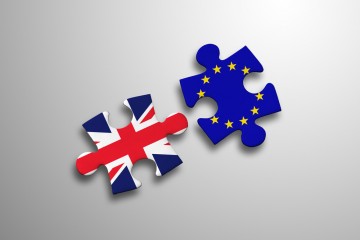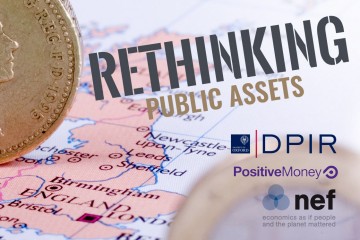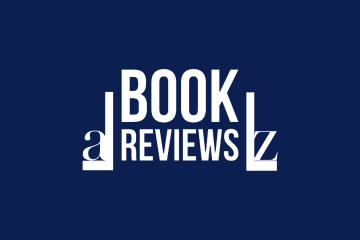
What explains Euroscepticism in the Conservative Party?
Many believe that the EU referendum has been called only to enable David Cameron to appease the Eurosceptics within his own party. This is debatable on numerous grounds. But what is certain is the eventuality that many Conservatives, including possibly some Cabinet ministers, will be joining the campaigns to get Britain out of the EU. For over a quarter of a century the issue of Britain’s role in Europe has been one of the most significant divisions within the Parliamentary Conservative Party (PCP). The European issue has been a reliable source of problems for the party leadership over the years. It has led to many rebellions, numerous defections, the downfall of Thatcher, and partly accounts for the Conservatives’ landslide defeat …

Reconsidering public wealth
Politicians often fail to understand the fundamental difference between household economics and the national economic system. The difference exists because households have to manage as best they can on what they can earn or borrow, whereas Governments have it within their power to create new money. A recent poll of Parliamentarians, commissioned by Positive Money, asked questions as to how new money is created. One out of ten respondents gave the right answer, two said they did not know and the remaining seven gave the wrong answer. This is not surprising. It is probable that less than 10% of the public understands money creation. As Henry Ford remarked “It is well enough that people of the nation do not understand …

New Series: Rethinking Public Assets
Five years after the financial crisis eased, sovereign debt, budget deficits and austerity politics still dominate the headlines. Yet despite deep cutbacks in many countries, governments still remain the largest asset-owner in most economies. They just don’t know it. Many of these assets exist beyond the balance sheet in the form of public land and real estate, state-owned enterprises and sovereign wealth. There are a number of implications to this hidden value. For instance, radical change in the way we understand and manage state assets could help tackle some pressing social and economic policy challenges. Clearer accounting of the ownership of and yield from public assets could augment public revenues, empowering the government to address public and household debt, income …

The Brexit Campaigns: In Out, In Out, Shake It All About
The rival camps are taking shape. Organisations have been launched, slogans road tested and logos commissioned. While no one knows when the EU referendum will take place, everyone has decided it’s time to make their case. A couple of weeks in, and the similarities between the Leave and Remain camps are as as striking as the differences. Both are quick to underline their patriotism; both go out of their way to emphasise British strength. No one, not even in the ‘remain’ camp, seems particularly fond of the European Union. And – perhaps most importantly – both campaigns are profoundly divided. On the ‘leave’ side, we have Leave.EU and Vote Leave, run by Matthew Elliott of Taxpayers Alliance fame. While the …

When States Act Emotionally: Professor Todd Hall Answers Questions on His New Book
In this interview, Todd Hall comments on some of the key aspects of his most recent publication Emotional Diplomacy: Official Emotion on the International Stage. How do state representatives use emotional displays strategically and what can they achieve by applying emotion to diplomacy? How do anger, sympathy and guilt feature in international relations? It is with clarity and distinction, that Todd Hall lays out how emotions are used to influence outcomes in international relations, both in theory and in practice.

Experimenting with citizens’ assemblies in the UK
In October and November, two citizens’ assemblies will be taking place in Sheffield and Southampton. Organised by a coalition of academics and civil society organisations under the banner Democracy Matters, Assembly North and Assembly South represent significant interventions in contemporary British politics. First, the assemblies will be dealing with a fundamental constitutional question: how should we be governed? The main focus of the assemblies will be devolution and decentralisation of power to English regions. The Devolution Deals that are current government policy are piecemeal reforms. And as the term ‘Deal’ suggests, they are stitched together by local and national elites: citizens have had no say in how they should be governed. Following the much publicised Devolution Deal for Greater Manchester, …

So, what was Magna Carta?
This year, we celebrate the eight-hundredth anniversary of one of the most revered documents in English history. On 15 June 1215 at Runnymede (a small meadow outside of London, marking the midpoint between two armies locked in civil war) King John set his seal on Magna Carta – the ‘great charter’ that has become synonymous throughout the world with opposition to arbitrary rule, and with the protection of individual rights and liberties. But what, exactly, was Magna Carta? Few of John’s contemporaries could have guessed at its enduring and universal significance. Magna Carta was the product of a specific breakdown in feudal authority. It was a peace treaty and a political settlement, aimed at bringing to an end months of …

Would leaving the EU reduce immigration to the UK?
Migration and free movement are among the top questions in the debate about the UK’s relationship with Europe and the approaching membership referendum. In a country where most migration has traditionally come from outside Europe, EU migration now makes up almost half of non-British immigration to the UK. Following five years of policies designed to reduce immigration, quarterly statistics released at the end of August showed net migration reaching the highest level on record, taking the government ever further from its goal of reducing net flows “from the hundreds of thousands to the tens of thousands.” The combination of renewed debate about EU membership and the difficulty reducing UK immigration have led to discussion about whether leaving the EU will reduce …









